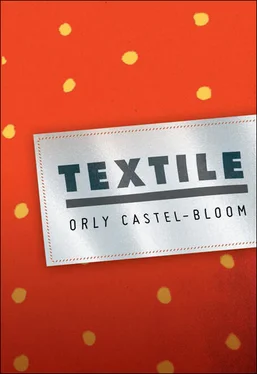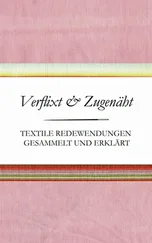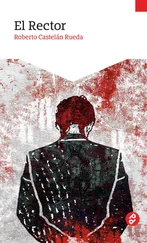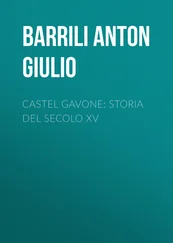Once again she banished from the arena of her thoughts the abandonment of her father and the death of her mother, on the grounds that she already knew the facts and she couldn’t change the situation. It was all down to her, and therefore she had the moral legitimacy to put off grieving. Apart from which, Lirit preferred to think positive thoughts, and she went back to basking in her new status as the director of the pajama factory. If you looked at it in the long term, it was cruel but true, she had struck it lucky. Mandy’s death had positive aspects too, in relation to Lirit’s freedom of action and her personal growth. Her posture had improved a lot too. Suddenly her neck vertebrae were no longer at an angle to the rest of her spinal column, and her head didn’t droop when she was walking.
Even her self-image had improved in the wake of compliments she had received from a top model she had met in Mikado, and also from her personal psychologist, Inbal Asherov, who she had gone to see on a one-off basis, and who had seemed very pleased with Lirit’s progress.
She turned onto Route Six, the new toll road, and was impressed by its width and the fact that there wasn’t much traffic on it at eleven in the morning. The meeting with the organic cotton grower Oron de Bouton was set to take place at noon at the entrance to Kibbutz Kissufim. It was relatively early and Lirit went over the lesson Mandy had tried for years to teach her and which she had rejected as if it was in a foreign language: the warp is vertical and the woof is horizontal. Fabrics are made of threads. Threads are made of fibers. The carding machine is the machine that combs the fibers. There’s a cotton board, just like there’s a poultry board.
“WHAT AN IDIOT THAT PSYCHIATRIST OF YOURS IS,” SAID Irad and added salt to the shakshuka Bahat had made him instead of the scrambled egg. He had changed his mind a second before she broke the egg, and after she had served him the hot, bubbling dish of eggs and tomatoes, and he had sprinkled it with salt, he added:
“He’s infantile. Who is he to diagnose me? Hey? You know what he said to me? No? So let me tell you, because it’s about your elections. He told me that he was depressed, because the Democrats lost. I didn’t know that the Democrats lost.”
“The Democrats lost,” said Bahat.
Gruber waved a scolding finger in the air.
“Your doctor, the psychiatrist, sounds to me like a very disturbed fellow. First of all, his appearance is nebulous and undefined. It’s hard to tell if he’s even handsome or ugly, he’s so volatile. A person who doesn’t take a fee for the initial consultation. Who’s ever heard of such a thing? I don’t think I’ll even take the pills he prescribed me.”
Bahat was horrified.
“What are you talking about? Bill Stanton? He’s considered one of the finest in the entire state of New York! He graduated from Cornell with distinction! And he’s from Ithaca,” she concluded proudly.
“Enough already with that hubris,” said Irad and buttered a slice of bread with which he quickly wiped his plate. Bahat looked at him and thought that he ate fast and a lot, and altogether he was costing her a fortune, and while they were both silent and he was eating, she calculated how much he had cost her since the moment of his arrival, including the massage and the meal at the French restaurant, and it came to over two thousand dollars. And of course, the five hundred dollars he had offered as a contribution to expenses, he had failed to mention again. Before she had time to take in this interim account another problem revealed itself: the medication. That too would no doubt cost a fortune. She was sorry, but she would have to ask him to share the expenses. She was sick and tired of all the egomaniacs in the world.
“My dear,” Gruber suddenly addressed her with a confusing tenderness she had never come across before in a man of his age. “You shouldn’t have called him in,” he said, chewing another, extra, slice of bread and butter. “It’s a waste of your time and effort. I can tell you myself what’s wrong with me.”
“Yes?” she said, wondering if he was going to tell her anything new.
“I was diagnosed three years ago by a senior psychologist at the Defense Ministry as borderline with a high level of organizing ability. Apart from that, I have a tendency to deep depression. Mandy, my wife, may she rest in peace, understood me very well. She understood that with geniuses, personality disorders, psychological disturbances, whatever you want to call it, are a must. The sensitivity and the ability to see the facts in a different light originate in the nervous system, which is also the first to suffer. What disorder do you suffer from?”
“Attention and concentration disorders and severe communication problems. Sometimes I stutter. That’s why I don’t give lectures as a rule. I begin on a subject, open parentheses and more parentheses, and forget what I’m supposed to be talking about. I’m not a sociable person,” Bahat confessed and lowered her eyes.
“Do you take Ritalin?” asked Irad.
“Among other things.”
“I don’t take Ritalin, because it has side effects, especially if you’re post-traumatic.”
“So you are post-traumatic.”
“Apart from my genius — on whose altar you’ll find my nervous system — I am also post-traumatic, correct. I carry that on my back too,” said Gruber, looking serious.
“And what’s the trauma?”
“Moving houses,” said Gruber quietly.
“Ah, yes. We’ve heard that before,” said Bahat dismissively.
“It’s the third most severe trauma in children. After death in the family and divorce.”
“It happened to you as a child?” she asked. “I don’t understand.”
“No, it happened to me two years ago, when we moved to Tel Baruch North. It was a big blow. I didn’t expect it to happen to someone of my age, in my position. Mandy said it would get better with time, she was in a bit of a shock herself. .”
“Why? Where did you live before?”
“In Neve Avivim. 44 Tagore Street. You know it?”
“I don’t know anything about those neighborhoods. What’s the difference?”
“The difference? You’ve been stagnating here too long to understand the differences. You left when Neve Avivim had just been built, which is a long time ago. You haven’t got a hope of getting to the bottom of the difference. In general, Neve Avivim and Tel Baruch North are as far apart as West from East. Aah,” he sighed disconsolately. “Tel Baruch North is a place without a past, with tremendous difficulty in connecting to the present. That’s how I feel anyway. And whoever did the landscape planning for the neighborhood did it without any heritage too. They filled the place with coconut palms! There are no butterflies, never mind honeysuckers. Or hedgehogs. There’s no food chain. And lawns — there aren’t any. Are there?” he tried to remember.
Bahat went to the sink with his plate and almost threw it in with the cutlery. She was really fed up. If he didn’t take his pills, what was she going to do? She decided to call Propheta. Sometimes he gave excellent, spot-on advice.
“You know, Bahat,” continued Gruber, in a more pleasant tone, as if he were a real-estate consultant with life experience. “It’s not a good idea to buy a new apartment in a new location, with new infrastructure, new vegetation, new trees, new stairs, new everything. It’s no good being the first in a certain place. It gives rise to anxiety. I like houses that have been lived in before. It’s less frightening when you’re not the first, when you’re not supposed to determine anything, but there I feel a kind of obligation to the house itself, do you understand? As if I have to give it an ambience, do you understand?” he asked Bahat again.
Читать дальше












